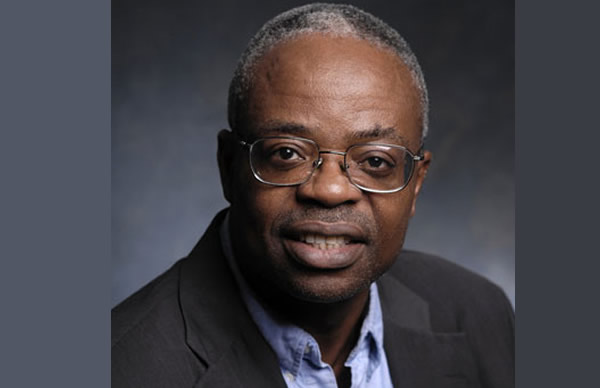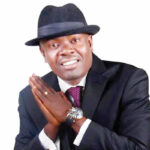
It’s been said by many that only a revolution can change — and thus save — Nigeria. In an interview on Arise News recently, Doyin Okupe, declared with much confidence that the revolution is now underway and will be actualised in 2023.
When we think of revolutions, what usually comes to mind are military coups and mass uprisings that upturn the existing order. But what Okupe had in mind was a revolution through the ballot box. Okupe happens to be the spokesman for Peter Obi’s presidential campaign, and the revolution he has in mind is that of voters ousting the two parties that have alternated in Aso Rock since 1999.
In other words, Okupe is confident that Peter Obi will beat the All Progressives Congress’ Bola Tinubu and the Peoples Democratic Party’s Atiku Abubakar in next year’s presidential election. That would be the electoral equivalent of David slaying two Goliaths.
It is expected, of course, that a campaign spokesman would talk up his candidate. But Okupe’s prediction is not mere braggadocio. There has been a strong yearning across the country for a New Nigeria, and now there’s the sense that Peter is the rock on which that new nation will be built.
When 2023 was in the distance, the overriding question was whether the PDP could unseat the APC in Aso Rock. But just before the primaries, Obi sensed that the usual maneuvering was afoot in the PDP to install an old guard. He bolted to the Labour Party, and just like that, it rose from relative obscurity to a contender. And just like that, people realised that there is truly an alternative, that the established order can be upturned.
Senator Ben Murray-Bruce (Bayelsa East, PDP) concurs with Otupe in predicting a revolution. “When the revolution comes, nobody is going to tell anybody. You will feel it in your bones,” Murray-Bruce said in a YouTube post. “And Nigerians can feel it in their bones. They can feel that something is not right. And you know what else they can feel? They can feel that they have the power to change something.”
It is not that Tinubu and Abubakar have suddenly become pushovers. They both have impressive political resumes and demonstrable leadership abilities. Ironically, those may also be their liabilities. What people who are thronging in Obi’s direction are asking is where all that have left Nigeria? The sense is that both candidates are seeking the presidency because they feel it is their turn. By contrast, Obi is running because he has a vision for the country.
Even the astronomical fees both the APC and PDP charged for the nomination forms raised red flags. The APC’s N100 million fee has been condemned as scandalous. And even the PDP’s N40 million fee could be purchased only by people who have their hands on the proverbial pot of gold. N40 million is about $68,400 in the informal sector. That is about 70 per cent higher than the fee of $40,000 charged by America’s major political parties. And that makes the Nigerian presidency limited to a much more exclusive few.
Moreover, it’s been widely expressed that anybody who pays N100 million for a job that pays N30,000,000 per year must have plans to recoup it somehow. And such has been adjudged to be the major drag on Nigeria’s development.
What recommends Obi is what Nigerians have been craving for years: a leader who will make Nigeria’s naira go the furthest. Every leader claims significant accomplishments, but few can demonstrate that they did the most with the revenue they received. Few can demonstrate that they cut waste mercilessly the way Alexander the Great slashed the hitherto untie-able Gordian knot.
Unlike corruption, some of the waste takes place in full view through the extravagance of governance. Few leaders have shown that they don’t need to be ostentatious to inspire. Few have demonstrated that they can govern frugally and demand the same of their subordinates. And hardly any has demonstrated how savings were applied to remarkably transform health, education, the payment of salaries and pensions, etcetera.
As Obi has stated in various fora over the years, he exemplified these leadership virtues and accomplishments as the governor of Anambra State from 2007 to 2014.He cites figures to back up his claims and challenges anyone who doubts them to check them out.
In social science and medical research, the most powerful forms of evidence and before-and-after measures or controlled comparisons. Those are the yardsticks that Obi judged himself. So far there has been no real refutation. In fact, his account of his stewardship has been corroborated by the likes of Murray-Bruce. So then, the expectation of Obi’s supporters is that he will do for Nigeria what he did for Anambra.
There are those who see his election as inexorable. But election day, Feb. 25, 2023, is still about eight months away. Much can happen between now and then. Obi is going against two political stalwarts who are determined to become president. They have considerable leverage in swaying the election in their direction, not the least of which are organisational structures and money.
But then, a populist political movement cannot be underestimated. As Murray-Bruce has pointed out, structure is ultimately about the people. He cites the example of a northern Muslim man who has declared his home a campaign office for Obi. And there are YouTube and social media activism all over the country along the same line.
One Abuja-based senior pastor, who took pains to point out that he is not an Igbo, posted a YouTube video urging the youth to support Obi. “Any Nigerian youth that votes for Atiku or Tinubu is heartless,” he said. “We all know that these people don’t care about Nigeria…. Please, and please, let’s go for Peter Obi.”
And then there are youth influencers all over the country. Through social media and other outlets, they are making their voices heard and they are enthusing their fellow youths. Just the other day former Super Eagles captain Joseph Yobo urged delegates to primaries to vote their conscience, and not be swayed by money. They might not have heeded him, but the youth probably will during the general elections.
As to money, campaigns are expensive even without vote buying. And Obi and the Labour Party are presumably at a disadvantage. But not necessarily. Sure, the Nigerian youth— the backbone of Obi’s predicted revolution— are not nearly as financially endowed as supporters of the APC and PDP. But that advantage can be offset by the passion and foot work of volunteers.
Moreover, Nigerians in the diaspora seem eager to step in. Diasporan remittance to Nigeria in 2021 rose to $19.2 billion, according to World Bank reports. Just a fraction of that will boost Obi’s campaign. Of course, diaspora Nigerians are not going to short-change their families back home. The remittance figure is just evidence of what can be done by supporters here.
The revolution may be here indeed!





